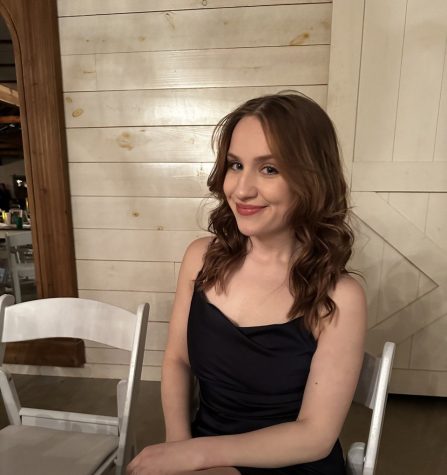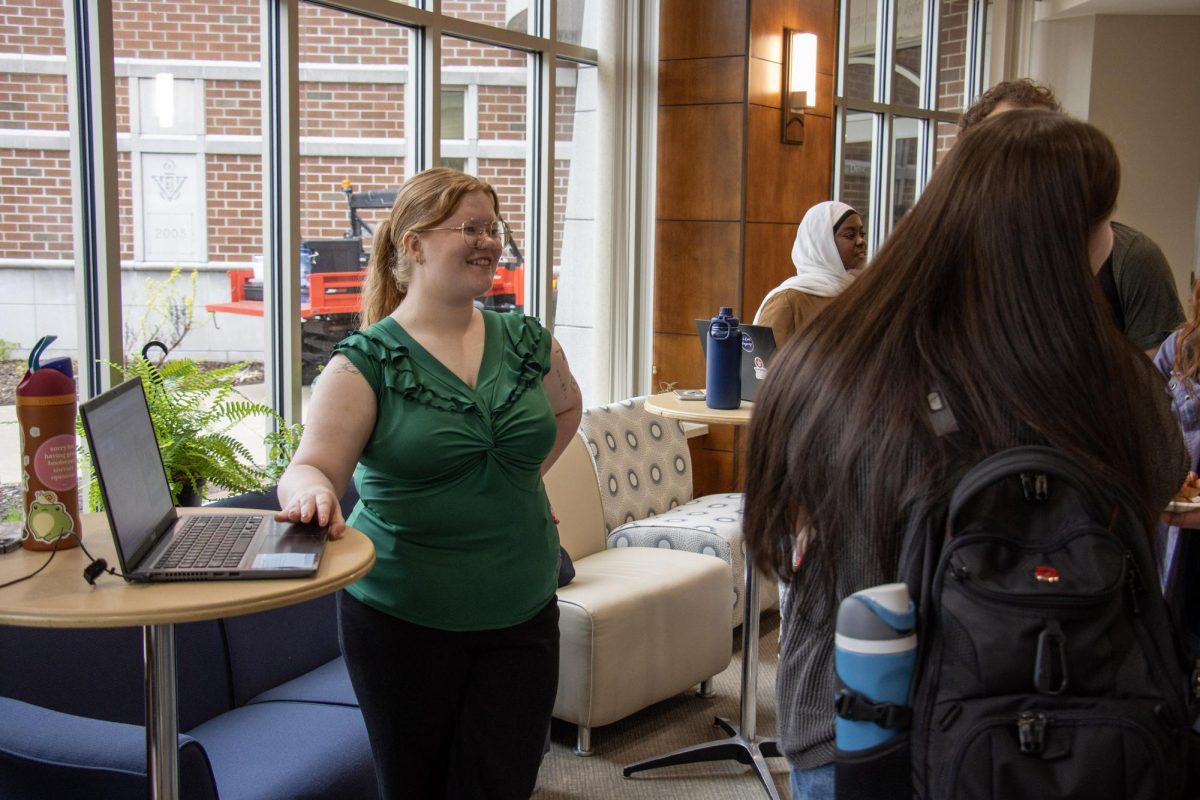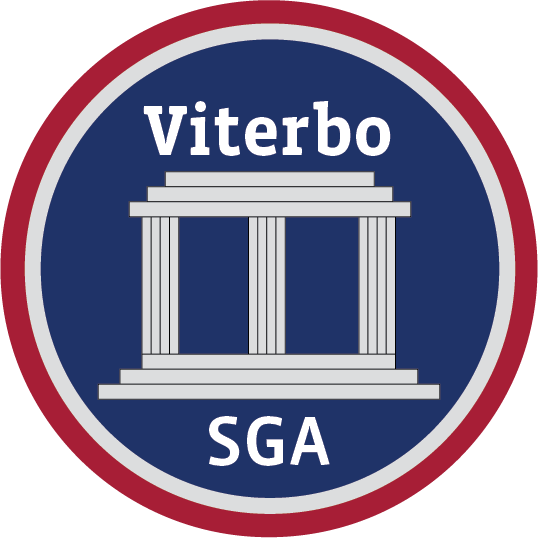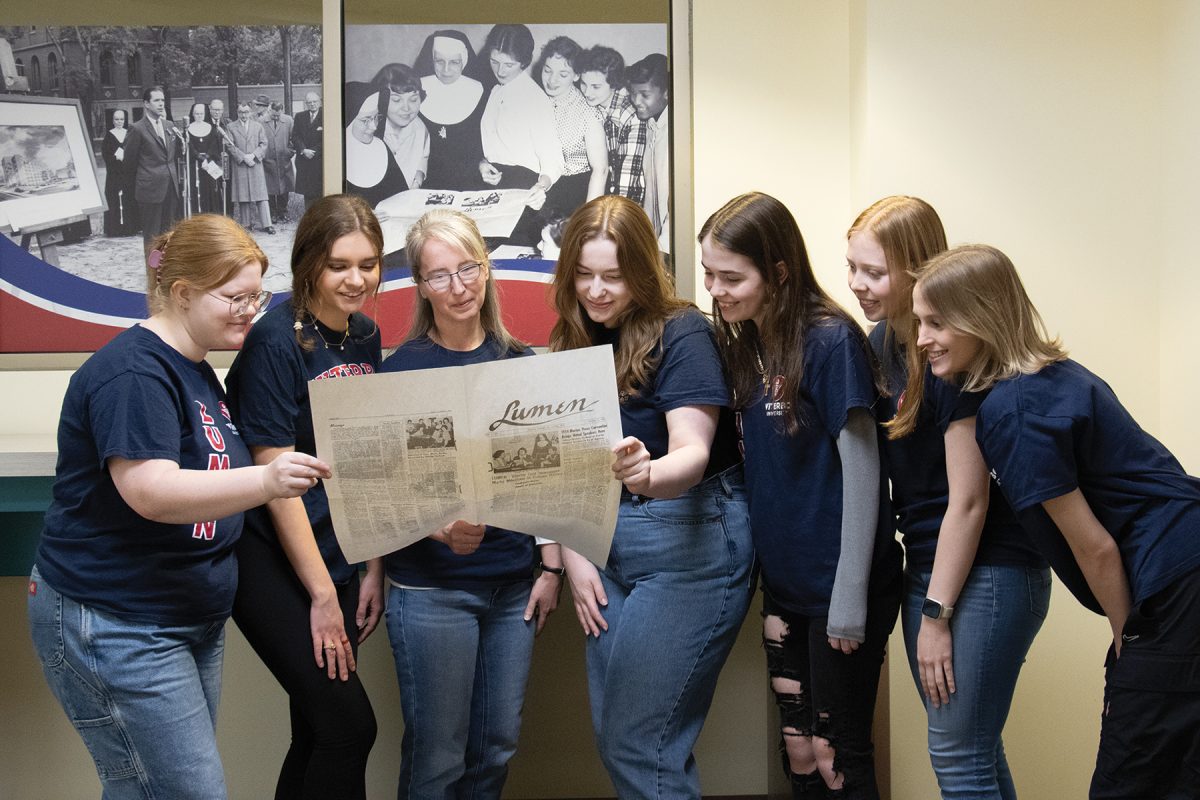Farewell Address: My understanding of life’s values
April 30, 2023
My first semester at Viterbo I took VUSM-100 with Josh Lichty, an assistant professor in the School of Education. Throughout the course, we created a book of reflections titled “Understanding Life’s Values.” For my last editorial, I could tell you all about my time with the Lumen, as those before me have done, or I could use this opportunity to share important life lessons that I have learned both in the newsroom and outside of it.
According to a study published by the American Psychological Association, perfectionism is an increasing issue amongst college students due to increased pressure from parents, institutions and society. The APA defines perfectionism as a mindset consisting of “a combination of excessively high personal standards and overly critical self-evaluations.” In chapter five of my reflection book, I talked about anxiety and self-doubt, but I was really talking about drive, motivation and the desire to be perfect. I criticized myself for not doing better and labeled myself as a fraud when, in reality, I was doing the best I could.
As a college student, I often fall victim to the desire to be perfect and the pressure to perform well, but it is something I am working to overcome. It is not always an easy task, but it is something that allowed me to realize I do have the drive and motivation to succeed in my education. Who cares if you failed a test, forgot to do your homework, or need longer than four years to graduate? College is about learning and growing, which means making mistakes is a natural part of the process.
Chapter six was about identity and how it is defined by the “Five C’s”: creed, country color, class and culture. While these might be part of one’s identity, I don’t think they entirely define them. I believe that our identity and sense of self comes from one’s virtues and vices. One thing I learned during my time at Viterbo is the importance of creating and upholding values.
Understanding my virtues and vices has taught me who I am and allowed me to shape the way I live my life. Dr. Richard Kyte, Director of the D. B. Reinhart Institute for Ethics in Leadership, wrote in his book, “An Ethical Life: A Practical Guide to Ethical Reasoning,” that our character is “formed through repeated actions … until the behaviors become habits, and the habits shape the way we perceive ourselves and others.”
Dr. Kyte also wrote that it’s not about “who we were born to be, or who we wish to be, but who we become over time.” Where you live or what you look like can always change, so why would that define you? The choices you make every day create your identity and the best part about that is you can always choose to change.
Chapter nine focused on purpose and what it means to find yours. I stated that I was terrified I would never find my purpose, and I was struggling to understand how to combine my passions with my purpose. I have always had a passion for helping other people, but I struggled to understand how that fit into my future. After joining the Lumen, it became clear to me that I wanted to continue writing, but I still felt a disconnect between my passion and purpose. The pieces became clear to me when I was asked what my vocation was.
Vocation is defined as “a summons or strong inclination to a particular state or course of action.” I stated that my vocation was journalism because I wanted to be a voice for the voiceless and share stories that need to be told. This made me realize I had it backwards. My purpose is to help others, and my passion is writing. Through journalism, I can combine them. Purpose sounds scary to think about, but I believe the trick to finding it comes from understanding who you are and what you want out of life.
The last life lesson I want to discuss is focused on legacy. I wrote about what it meant to leave a legacy and how it comes from the impact you make. I finished that chapter by stating that I hoped to make an impact or change something to create my legacy here at Viterbo.
A good leader leaves something better than they found it, and that was always my goal as Editor of the Lumen. I wanted the paper to represent the student body and make a difference, so with each issue, I tried to find ways to share news, promote change and encourage inclusivity. I hope at least one article the Lumen produced during my time did this, and if so, I will let that be my legacy.
Thank you for allowing me to share your stories over the last two years. Thank you to my advisors and staff for trusting me to lead this publication. Although my time at Viterbo is coming to an end, I will keep the lessons I have learned with me.



